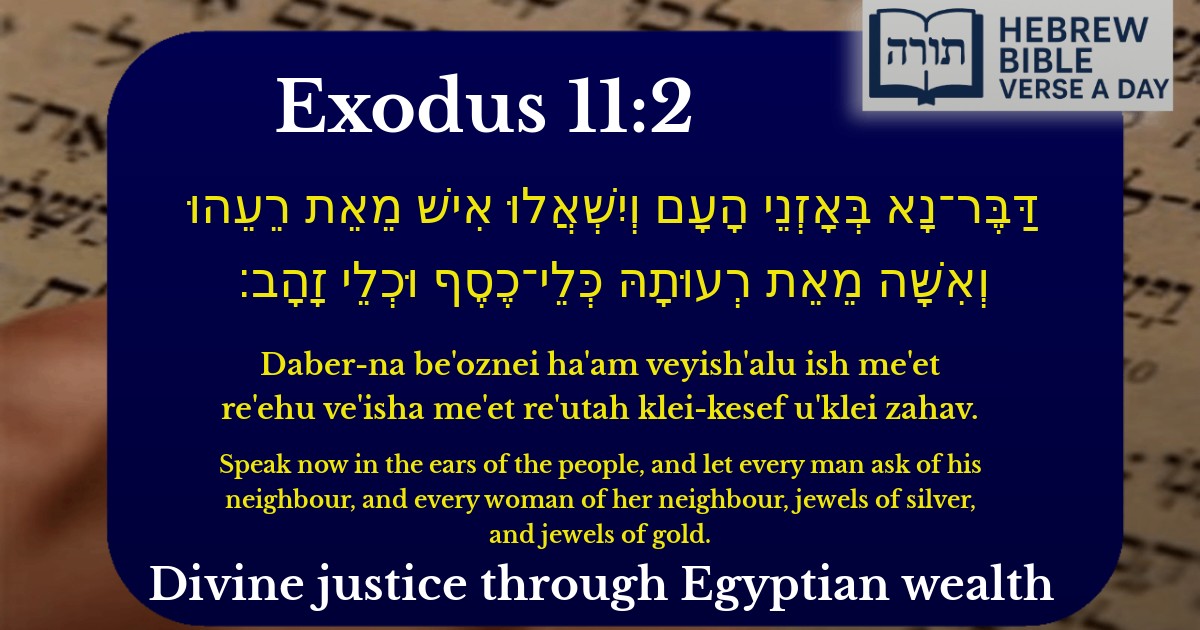Join Our Newsletter To Be Informed When New Videos Are Posted
Join the thousands of fellow Studends who rely on our videos to learn how to read the bible in Hebrew for free!
Hebrew Text
דַּבֶּר־נָא בְּאָזְנֵי הָעָם וְיִשְׁאֲלוּ אִישׁ מֵאֵת רֵעֵהוּ וְאִשָּׁה מֵאֵת רְעוּתָהּ כְּלֵי־כֶסֶף וּכְלֵי זָהָב׃
English Translation
Speak now in the ears of the people, and let every man ask of his neighbour, and every woman of her neighbour, jewels of silver, and jewels of gold.
Transliteration
Daber-na be'oznei ha'am veyish'alu ish me'et re'ehu ve'isha me'et re'utah klei-kesef u'klei zahav.
Hebrew Leining Text
דַּבֶּר־נָ֖א בְּאׇזְנֵ֣י הָעָ֑ם וְיִשְׁאֲל֞וּ אִ֣ישׁ&thinsp
דַּבֶּר־נָ֖א בְּאׇזְנֵ֣י הָעָ֑ם וְיִשְׁאֲל֞וּ אִ֣ישׁ&thinsp
🎵 Listen to leining
Parasha Commentary
📚 Talmud Citations
This verse is not quoted in the Talmud.


Context in Shemot (Exodus) 11:2
This verse appears just before the final plague, Makat Bechorot (the Plague of the Firstborn), when Hashem instructs Moshe to prepare Bnei Yisrael for their imminent departure from Mitzrayim (Egypt). The request for silver and gold vessels is part of the fulfillment of Hashem's promise to Avraham in Bereshit 15:14 that his descendants would leave with great wealth (Rashi, Shemot 11:2).
The Purpose of Collecting the Vessels
Why "Ask" Rather Than Take?
The term "וְיִשְׁאֲלוּ" ("let them ask") implies a request, not seizure. Rashi explains that Hashem wanted Bnei Yisrael to merit the wealth through a semblance of voluntary giving, so the Egyptians could not later claim theft (Shemot Rabbah 14:3). The Kli Yakar adds that this preserved the moral integrity of Bnei Yisrael as they left slavery.
Gender-Specific Language
The verse specifies "אִישׁ מֵאֵת רֵעֵהוּ וְאִשָּׁה מֵאֵת רְעוּתָהּ" ("every man from his neighbor, and every woman from her neighbor"). The Or HaChayim highlights that men and women were instructed separately to ensure modesty and propriety in interactions between the sexes during this exchange.